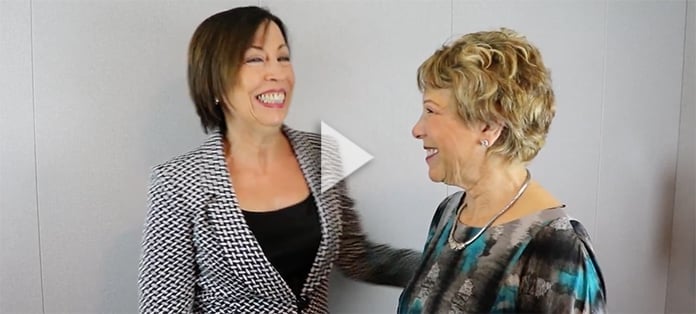VICKIE: This is Certified Legal Nurse Consultant, Dale Barnes, RN, MSN, PHN, CLNC and I’ve asked her to talk with me today about independent medical examinations (IMEs), which are also referred to as defense medical examinations (DMEs) in some states. Dale, tell us about the process of sitting in on an IME/DME. What’s your role?
Dale: If I’m there with the plaintiff (which is what I’m usually there for), I’m there as an advocate to protect them. I’m there to see exactly what their injuries are. I’m there to record everything so that the plaintiff attorney has a very good record of what has taken place.
VICKIE: And, when you say record, do you mean audio record or document what’s happening?
Dale: I do both. Sometimes they don’t allow the audio recording, but most of the time they do and I audio record. Sometimes I even video record.
VICKIE: There’s an advantage to audio recording because that means the MD or practitioner who is doing the exam can’t dispute what happened in the room. So that’s a perfect reason to actually record it.
Dale: It’s also important to document because in an audio recording you can’t see what’s happening. So if a patient is grimacing, or if the physician does something that hurts the patient, you can’t necessarily hear that on an audio recording.
VICKIE: So that’s why you want to do both.
Dale: Exactly.
VICKIE: I know that you said that you serve as an advocate if you’re on the plaintiff side. In the CLNC® Certification Program we teach that they’re not there as an advocate. But the IME or DME is a little bit different because you’re really there, not just as a consulting expert, but actually as a fact witness to the entire event. That’s why it’s appropriate to serve as an advocate on behalf of that plaintiff.
Dale: Yes, if anything inappropriate is said by the physician, or if he asks or tries to do an exam that isn’t allowed, that’s where I come in to speak up.
VICKIE: So you can step in and intervene on behalf of that plaintiff because they might not know that the MD’s doing something inappropriate. What do you do differently if you’re on the defense side?
Dale: On the defense side I don’t intervene at all. I’m strictly an observer to see if the plaintiff’s issues are really what they’re claiming to be.
VICKIE: So you might be able to walk away from that IME or DME and identify some defenses that can help better defend that case.
Dale: Absolutely!
VICKIE: And primarily you relate it to the alleged injuries and damages in the case.
Dale: Yes, that’s correct.
VICKIE: You might identify causation issues, preexisting conditions or something of that nature in the exam as well, right?
Dale: Yes, they’re not supposed to ask about those things but it happens.
VICKIE: You’ve been doing these exams for decades now. I know there are the obvious tips, but give us a couple of tips that Certified Legal Nurse Consultants who haven’t done these exams might not think about.
Dale: First, be prepared. Make sure that you have extra batteries or a charger with you for the audio recorder. Second, remember that you can’t see everything on the audio recordings, so don’t forget to take notes.
VICKIE: Being a thorough note-taker is a tip. In our office we always say the person who takes the best notes wins. That’s true in every aspect of what we do as Certified Legal Nurse Consultants.
Dale: Yes, and be sure to contact the attorney afterwards to ensure the attorney is aware of what transpired at that time. Don’t forget that if you get to the physician’s office and there’s any sort of an issue or problem (such as they make you wait too long or an interpreter who’s supposed to be there isn’t) you need to immediately call the attorney.
VICKIE: That’s an important point. What about your role after the exam. Potentially you could be called in as a fact witness. How common is that?
Dale: For me, not at all. And for me it’s also less common to write a report, but I’m prepared if I’m asked to do so. And there are those occasions when that does occur, so I have to be prepared for that request.
VICKIE: I asked this question because I know a lot of people get nervous about the possibility of having to testify, whether it’s as an expert witness or as a fact witness on behalf of an IME or DME. But, I always like legal nurse consultants to remember that 95% of these cases don’t go to trial.
Dale: It’s also important to know that if you’re called in as a fact witness they don’t try to trip you up as much. It isn’t as overwhelming as being an expert witness. It’s less about your credibility as an expert and more about the facts.
VICKIE: Thank you Dale, I appreciate you sharing your tips on DMEs and IMEs with us today.
Success Is Yours!
P.S. Comment and share your own tips for IMEs and DMEs.









I always wonder if I should object when the MD is asking my clients questions that I have gone over w/them that they shouldn’t answer like, “Please describe the accident.” Even though I brief them 15 min before and tell them not to answer certain questions, I don’t object unless I have specific instructions (only from one attorney) to speak up.
Your thoughts…
I like to memorize the Response Letter and keep a highlighted copy with me during the exam as a reference. Object, then simply state, “per the Response Letter on page x, section x, line x, this is not allowed. I advise you Mr/Ms So-and-so not to answer this question.” Use the RL as your shield AND sword when advocating for & protecting your client.